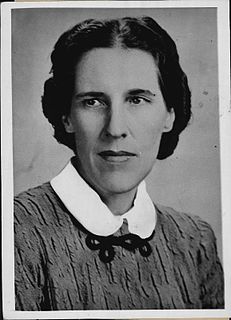Цитата Генри Филдинга
Герои, несмотря на высокие идеи, которые они могут питать о себе с помощью льстецов или о которых может думать мир, определенно имеют в себе больше смертного, чем божественного.
Связанные цитаты
Чем больше круг света, тем больше граница тьмы, которой он ограничен. Но, несмотря на это, чем больше мы получаем света, тем больше мы должны быть благодарны, ибо благодаря этому у нас появляется больший простор для удовлетворительного созерцания. со временем границы света будут еще больше расширены; и из бесконечности божественной природы и божественных дел мы можем обещать себе бесконечный прогресс в нашем исследовании их: перспектива поистине возвышенная и славная.
Как коршуну свойственно пожирать маленьких птичек, так и некоторым умам свойственно оскорблять и тиранить маленьких людей; это средство, которое они используют, чтобы вознаградить себя за свое крайнее раболепие и снисхождение к начальству; ибо ничто не может быть более разумным, чем то, что рабы и льстецы должны взимать со всех, кто ниже их, такие же налоги, какие они сами платят всем, кто выше их.
Но эти милые мальчики и девочки - из них есть что сделать. Если теперь они отдадут себя Христу, то впереди у них будет долгий, счастливый и святой день, в который они смогут служить Богу всем своим сердцем. Кто знает, какую славу Бог может иметь от них? Языческие земли могут называть их благословенными. Ими могут быть просвещены целые народы. О братья и сестры, давайте оценивать детей по их истинной оценке, и мы не будем удерживать их, но будем стремиться немедленно привести их к Иисусу.
Скоты абстрактные нет. -- Если можно усомниться в том, что животные в какой-либо степени усложняют и расширяют свои идеи таким образом; в этом, я думаю, я могу быть уверен, что в них вовсе нет способности абстрагироваться; и что обладание общими идеями — это то, что проводит совершенное различие между человеком и животными, и является превосходством, которого способности животных никоим образом не достигают.
На земле больше идей, чем воображают интеллектуалы. И эти идеи более активны, сильнее, более устойчивы, более страстны, чем думают «политики». Мы должны присутствовать при рождении идей, при прорыве их силы наружу: не в книгах, выражающих их, а в событиях, проявляющих эту силу, в борьбе вокруг идей, за или против них. Идеи не правят миром. Но именно потому, что мир имеет идеи (и потому что он постоянно их производит), он не находится под пассивным управлением тех, кто является его лидерами, или тех, кто хотел бы раз и навсегда научить его тому, что он должен думать.
Как бы мы ни льстили себя обратному, наши друзья думают о нас не выше, чем мир. Они видят нас предвзятыми или недоверчивыми глазами других. Они могут знать лучше, но их чувства управляются народными предрассудками. Более того, они более стеснительны нас (находясь под облаком), чем даже незнакомцев; ибо мы вовлекаем их в общий позор или вынуждаем их впутываться в постоянные ссоры и споры в нашу защиту.





































